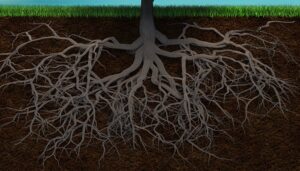Long ago, back in the mists of time before Covid, Larger Us started out as something called the Collective Psychology Project. I wanted to find ways of working not only on the hyper polarisation around Brexit in the UK and Trump’s first term in the US, but also – especially – the part that our emotions and thoughts had in creating that political context.
I was so fascinated by Cambridge Analytica, and how they claimed to be able to use the combination of psychological profiling and social media targeting to weaponise our own anxieties against us, and prompt a critical mass of us to see the world in them-and-us terms just when it matters most: at election time.
And I wondered – what would it take to inoculate an individual, a community, or even a whole society against this kind of mass trolling? Or to put it more optimistically – might there be ways we can draw on psychology to bring us together in the face of shared challenges rather than dividing us?
Now, with the ‘long crisis’ intensifying – in the process, turbocharging authoritarianism and polarisation across the US and Europe and around the world as it does so – that question is more urgent than ever.
It’s always there in the background of our work, like with the Climate Conversations project that we’ve been working on pretty much full time for the last year. But at this point it feels like we need to get back to tackling it head on, as we did in our early work – so after the summer, we’re going to kick off a new stream of work to do just that.
For one thing, it’s time produce a synthesis of what we’ve learned over the last six years: a short book on the psychological capacities that we need not only for our mental health, but also the health of the communities and democracies we’re part of, during a time of intensifying turbulence and uncertainty. Things like being able to:
– Steady ourselves in the face of things we find threatening
– Feel like we belong and are valued
– Recognise what we share in spite of the things that make us different
– Draw on deep stories that help us make sense of who we are and where we’re going
– Find agency, purpose and hope amid moments of shared loss or crisis
When we lack these capabilities, it creates opportunities for extremists who amplify our sense of threat, offer a warped kind of belonging, ramp up division, provide resonant (if dark) stories of identity and crisis, and play on shared loss as a source of grievance.
When we cultivate these capabilities, on the other hand, it not only makes us more resilient: it makes the communities and societies we’re part of more resilient, too, in the process helping to unlock shared action. Which is why they’re right at the heart of the Larger Us Programme, our training for change-makers and active citizens – which we’re going to update and expand as part of this new project.
Here’s the thing, though. The more we’ve run the Larger Us Programme, the more we’ve reflected that capabilities like these aren’t the kind of skills you can master once and for all in a two hour workshop, or a six week course. Instead, they’re the work of a lifetime.
Which might help to explain why historically, we’ve had particular kinds of institutions that have supported us in this work that’s at the cusp of inner and outer, individual and collective: from religions to trade unions and from working men’s clubs to bildung groups in Germany and Scandinavia.
Nowadays, though, all these kinds of institution are in decline, leaving us less and less sure whose job it is to support us in developing these capacities today. And that has big consequences for both our states of mind and the state of the world, as more and more of us struggle to find agency and belonging, meaning and purpose at a frightening, uncertain time.
So this project is also about looking ahead to the next chapter of Larger Us’s work by exploring the central unresolved question in our approach: what kind of infrastructure is needed to support us in cultivating these capacities? What’s the role of psychologists in this space? Or politicians? Activists? Educators? And what’s our own role as ordinary people, and where and how are we coming together to do this work?
These then are the kinds of questions that we’ll be getting into with this project. Two of the outputs will be a short book and a new and improved version of the Larger Us Programme, as already mentioned. But we’re also going to be doing:
– A new newsletter on Substack, which I’ll use to explore the ideas at the heart of the project;
– A reboot of the Larger Us Podcast with a new series talking to pioneers and pathfinders working at the cusp of inner and outer (and also just to friends doing interesting work!); and
– More convenings (both on and offline) to create space for collaborative exploration of the questions that we want to dig into.
More after the summer: watch this space! And as always, do get in touch if you have thoughts or want to find out more.


